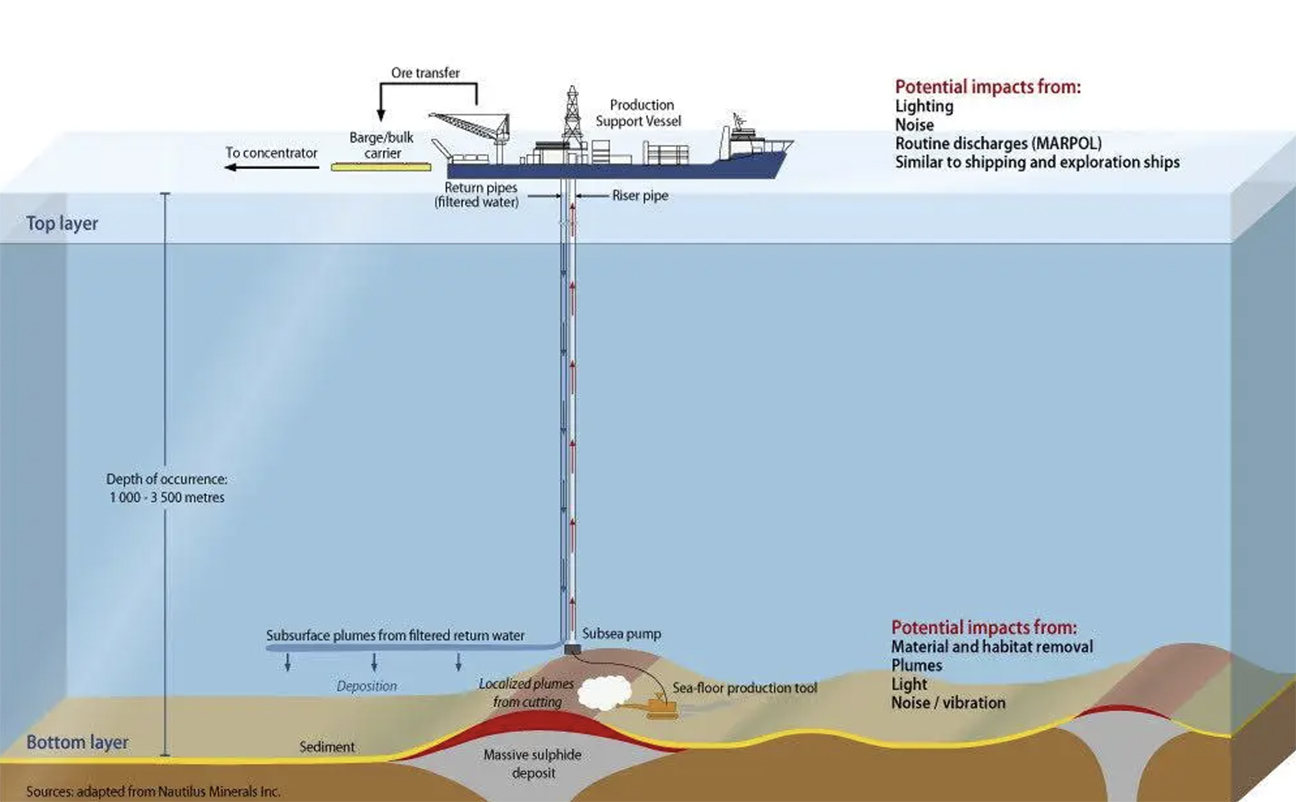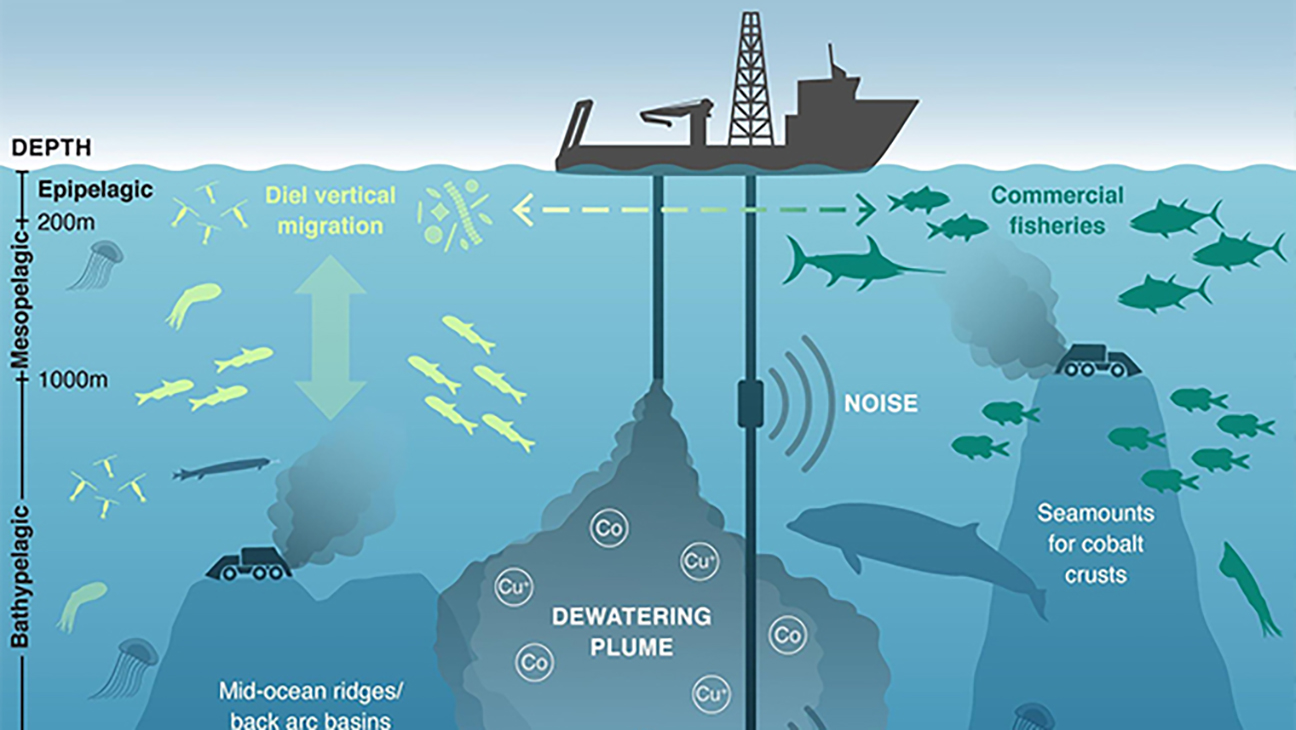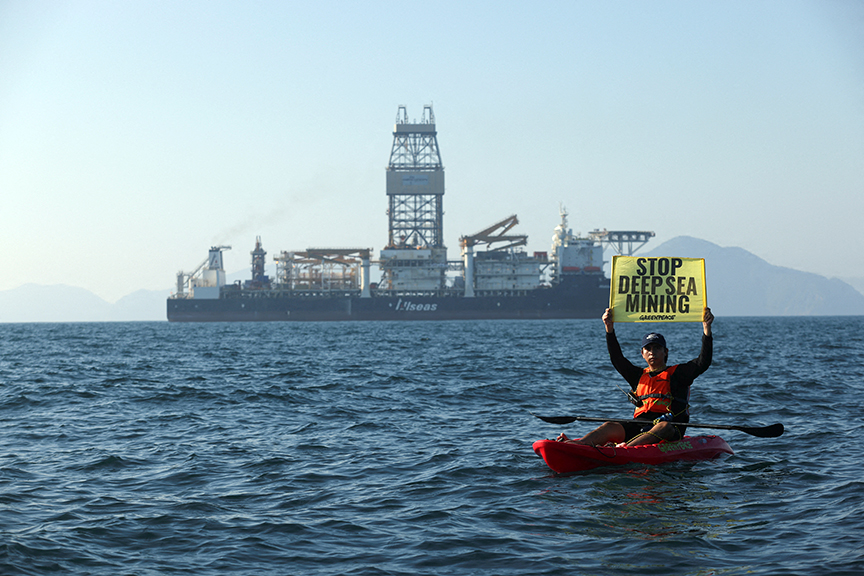Earth’s oceans, covering more than 70 percent of the planet’s surface, hold an astonishing 1.3 billion cubic kilometers of water, teeming with a staggering diversity of marine life. With regards to deep sea mining, however, our exploration of the oceans has barely scratched the surface, with only 20 percent of this vast realm having been explored to date. At its deepest point, the ocean plunges to an astounding depth of approximately 11,000 meters.
Just like any terrestrial ecosystem, it is imperative to safeguard the myriad of species that call the deep sea home. Unfortunately, the emergence of deep sea mining poses a grave threat to these fragile ecosystems. The allure lies in the rich mineral deposits, including cobalt and lithium, found on the seabeds, but this lucrative industry could spell disaster for our oceans.

The International Seabed Council has already given the green light for mining operations as early as September. Fortunately, organizations like the Deep Sea Conservation Coalition (DSCC) and other non-governmental organizations are actively working to thwart these potentially devastating consequences for our oceans.
Deep sea mining plans encompass three distinct types: polymetallic nodules from abyssal plains, cobalt crusts from seamounts, and polymetallic sulphides from hydrothermal vents. These underwater regions are veritable hotspots of biodiversity, and their destruction could have far-reaching consequences. What makes this situation even more dire is that much of the ocean remains unexplored, leaving us in the dark about the full extent of the potential environmental devastation.
This is precisely why it’s crucial to rally behind organizations like the DSCC, fisheries, and enforce stringent laws and policies to ensure that mining permits are not issued. Scientists have warned us that the impacts of deep-sea mining are likely irreversible.
“The last thing we need is deep sea mining digging ourselves into a deeper hole,” remarks Louisa Casson at Greenpeace. The risks posed by deep sea mining are myriad: the disruption of natural seabeds and ecosystems results in sediment plumes that threaten habitats and species with extinction. Wastewater deposits during the mining process create plumes that can stretch across hundreds of square kilometers. Moreover, the relentless noise pollution generated by these activities greatly disturbs marine life.
A study by Greenpeace highlights the adverse effects of noise pollution on whales, disrupting their navigation, communication, and breeding patterns. The constant 24-hour noise bombardment poses significant long-term harm to these majestic creatures.

Seabed mining, touted to provide cobalt and nickel for the electric vehicle (EV) industry, falls short in aiding these green initiatives. Lithium, a crucial component for EV batteries, is not found in abundance in the polymetallic nodules on the ocean floor. This renders seabed mining an unnecessary disturbance to marine ecosystems and the seafloor.
Seabed mining cannot be labeled as a climate solution. Instead of addressing the problem of mining on land, it merely shifts it underwater, further disrupting the Earth’s surface, albeit beneath the waves. This misleads people into thinking we are mitigating climate issues on land while invisibly exacerbating them beneath the ocean’s surface.
The Canadian company, The Metals Company (TMC), a leading proponent of seabed mining, has faced scrutiny for misleading statements to investors. With two class action cases against them, TMC’s credibility is questionable, raising concerns about the financing and ethics of such endeavors.
Thankfully, countries around the world are uniting to address and impose moratoriums on deep sea mining. A global coalition is emerging, with support from the Pacific, Latin America, and Europe. Governments and NGOs are voicing overwhelming support for a deep sea mining moratorium, as mounting evidence reveals its destructive impact. France and Germany, initially in favor of deep-sea mining, have reversed their stance in light of the alarming findings, realizing that there is no sustainable future in plundering the deep sea.
In this critical juncture, our shared responsibility lies in championing the cause of preserving the mysteries of the deep sea and protecting the fragile ecosystems that reside in its depths.






